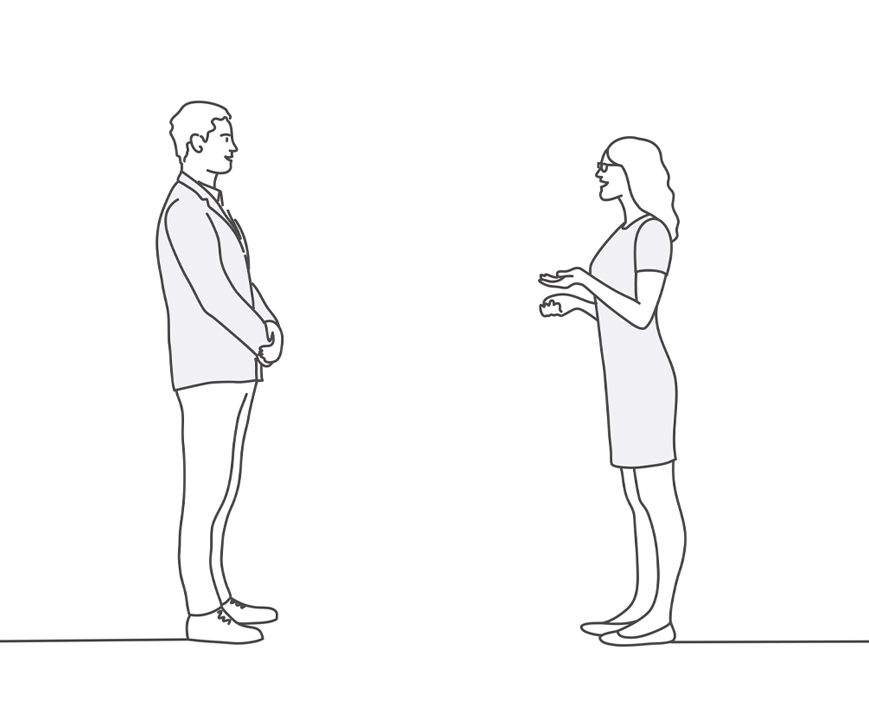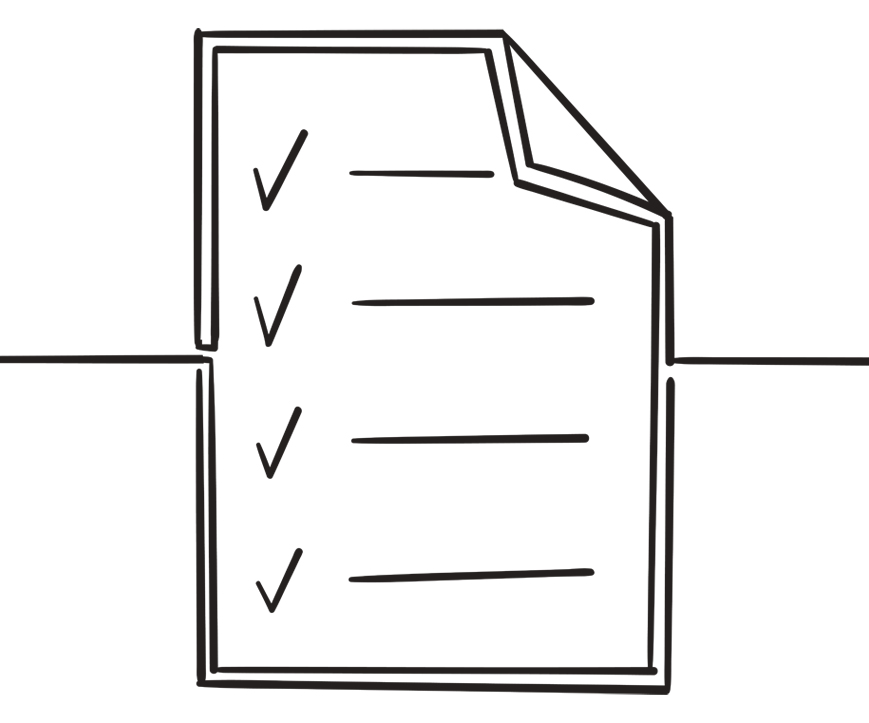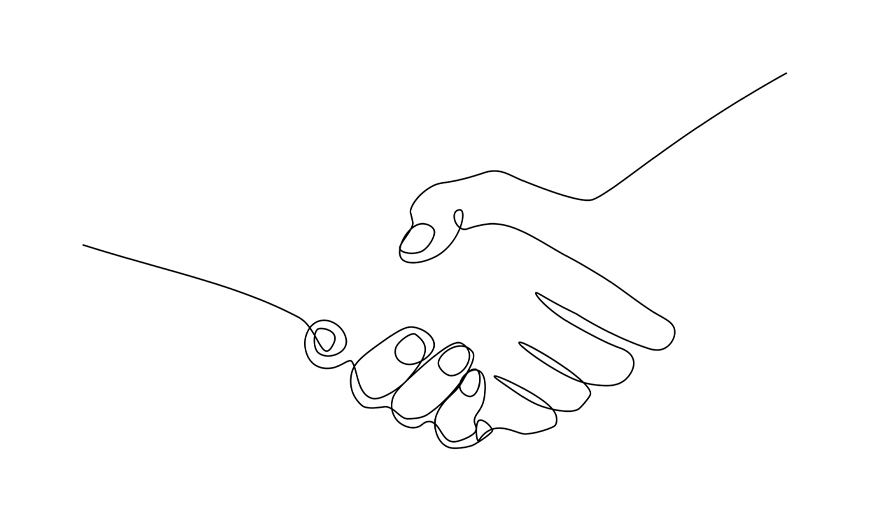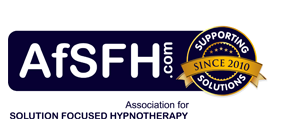COVID-19 Resources
Welcome to our AfSFH Member page about COVID-19
We hope that you find this information useful. We will be regularly updating this page and adding more content over the coming days and weeks, so please check back regularly.
If there is something else you think we should add, then just let us know!
Helping you and your clients stay safe
Current AfSFH position: 12 May 2022:

Current AfSFH position: 12 May 2022:
The UK Government has now removed all COVID-19 restrictions across the UK, but for the latest information, please refer to the guidelines direct available here: https://www.gov.uk/coronavirus.
Although no longer applicable, we will keep the information below for reference, and suggest that members still maintain good standards of hygiene and infection control measures when working with clients, particularly if working with clinically vulnerable individuals.
The UK Government has now removed all COVID-19 restrictions across the UK, but for the latest information, please refer to the guidelines direct available here: https://www.gov.uk/coronavirus.
Although no longer applicable, we will keep the information below for reference, and suggest that members still maintain good standards of hygiene and infection control measures when working with clients, particularly if working with clinically vulnerable individuals.
COVID-19 Information

The information highlighted in the following sections is now irrelevant when working with clients in the UK as all restrictions have been lifted. The information below is now only for historic reference.
Click on the links below to navigate to dedicated sections:
- SECTION A: Online therapy
- SECTION B: Preparing to work with clients
- GOLDEN RULES
- Step 1: Preparing to work with clients in person
- RISK ASSESSMENT
- CHECK
- UPDATE
- IMPLEMENT
- Step 2: Pre-session planning with a client
- Step 3: Conducting SFH in person
- BEFORE THE SESSION
- 24 HOURS BEFORE THE SESSION
- WHEN YOU ARRIVE AT YOUR THERAPY PREMISES/IN-BETWEEN CLIENTS
- WHEN YOUR CLIENT ARRIVES
- DURING THE SESSION
- END OF THE SESSION
- LEAVING YOUR PLACE OF WORK
- SECTION C: AfSFH Audits
- SECTION D: Reciprocal support
- SECTION E: Marketing advice
SECTION A: Government information & COVID-19 symptoms

The following sources are available from the UK Government. We advise that members always consult government published guidelines directly, and there may be different guidance depending on where you are based in the UK. For members working abroad, please consult information issued in your local area.
- About COVID-19 with links to all Government guidelines: https://www.gov.uk/coronavirus
- Business support: https://www.gov.uk/coronavirus/business-support
- Unlocking lockdown plans and guidance for businesses: https://www.gov.uk/government/publications/our-plan-to-rebuild-the-uk-governments-COVID-19-recovery-strategy
- Working safely: https://www.gov.uk/guidance/working-safely-during-coronavirus-COVID-19/5-steps-to-working-safely
- Woking safely guidance from HSE: https://www.gov.uk/guidance/working-safely-during-coronavirus-COVID-19/5-steps-to-working-safely
Symptoms of COVID-19
Do not leave home if you or someone you live with has any of the following:
- a high temprature
- a new, continuous cough
- a loss of, or change to, your sense of smell or taste
If you or someone in your home has symptoms of COVID-19 then you must self-isolate. Please check the NHS website for further medical advice: https://www.nhs.uk/conditions/coronavirus-COVID-19/
If you or someone in your household has symptoms, you should have a test for COVID-19: https://www.nhs.uk/conditions/coronavirus-COVID-19/testing-for-coronavirus/ask-for-a-test-to-check-if-you-have-coronavirus/
If you test positive, you must self-isolate at home for 10 days from when symptoms began. Anyone you live with must also then self-isolate for 10 days from when your symptoms began. If the test comes back negative and you've not had a fever for 48 hours, you and members of your househld no longer need to self-isolate. If the test comes back inconclusive, you may need to repat the test. Refer to the NHS website for further details.
SECTION A: Online Therapy

Over the course of lockdowns, many of us will have started conducting SFH online, and are likely to continue to do so for the foreseeable future. This may be using applications such as Zoom, Skype, WhatsApp and other such programmes.
We have policy guidelines about working online, which can be found here. These are in addition to our Code of Conduct, which applies to all therapeutic interactions, irrespective of delivery modality. Members should contact their professional insurance provider to ensure that they are covered for online working, and to ensure that any additional stipulations for online therapy are adhered to.Â
Whilst many therapists may have referred to online working in their T&Cs/client contract/agreement/consent forms before the pandemic, for anyone who hasn't previously done so it's important to update your T&Cs/contracts to reflect online working with clients. As with usual consent to therapy, it's also important that you receive explicit consent from your client confirming that they understand and consent to working online with you. Ideally, this might be via a scanned, client-signed copy of your consent form, or via an e-mail/text from your client verifying that they understand and agree to your conditions of working together.
The ICO have produced some useful general information for staying safe whilst working from home: https://ico.org.uk/for-organisations/working-from-home/how-do-i-work-from-home-securely/ and further information about videoconferencing: https://ico.org.uk/about-the-ico/news-and-events/news-and-blogs/2020/04/video-conferencing-what-to-watch-out-for/
For further information about using technology, see our Digital Advice page in our Business Support Hub.
SECTION B: Preparing to work with clients

Currently, the AfSFH position is that it is preferable to still work with clients online at present. However, in-person therapy can take place as long as it is conducted in a COVID-secure way.
NB: The information outlined below may not be applicable during times of lockdown or high tier restrictions, so please check for further details on www.gov.uk/coronavirus.
Golden Rules
(Applicable to all UK members. Those living outside the UK should follow national guidelines in their area).
All members MUST adhere to the following rules - please note that these may be different depending on where you live in the UK and if government guidelines change. Always check the latest government published guidelines:
1. If you or someone in your household develops COVID-19 symptoms you MUST self-isolate immediately and seek a COVID-19 test. You Must postpone any face-to-face sessions with clients immediately. If you feel well and are able to, you can offer online/telephone sessions to clients instead or refer them to another therapist.
2. In England, if you test positive for COVID-19, you must self-isolate for 5 days from when your symptoms began, and can only end isolation after having negative test results on day 5 and day 6 of isolation. If still positive after day 6, you must remain in self-isolation until you return a negative test result. You MUST NOT have any face-to-face sessions with clients during self-isolation. If you feel well and are able to, you can offer online/telephone sessions to clients instead or refer them to another therapist. Self-isolation guidelines may differ in other UK nations, so please check local government guidelines.
3. If someone in your household tests positive for COVID-19, or you have been notified by the NHS that you have come into contact with someone who has tested positive for COVID-19, you should take a test and MUST self-isolate for at least 5 days if it is positive (applicable to England). You must have NO face-to-face sessions with clients whilst self-isolating, even if you feel well. If you feel well and are able to, you can offer online/telephone sessions to clients instead or refer them to another therapist.
4. If you and other members in your household have tested negative for COVID-19, and no one in the household has had a temperature within 48hrs prior to receiving the test result, then you no longer need to self-isolate, and face-to-face sessions can take place, but only with appropriate social distancing and hygiene measures in place.
5. If you do hold face-to-face sessions, you must be fully insured to do so, have risk assessed your working environment and the client's health, have received client consent and ensure that appropriate social distancing and hygiene measures are in place.
PLEASE NOTE:
The information, suggestions, examples and guidance below are not exhaustive and subject to change. Members should ensure they take all current government guidelines into account, in addition to further advice from their insurance provider and other professional bodies which may apply to them. Some of the suggestions below overlap with guidance from the CNHC, which can be found in full here.
The AfSFH cannot comment on individual businesses or working practices. Each of us will have a unique set of working conditions - from our own personal health status, to unique working environments, and members should consider the points below in relation to their individual circumstances. One size will not fit all, but we hope that the information provided can be useful in guiding your future SFH work.
At all times, members are responsible for ensuring that they apply measures that are appropriate for them and their working conditions and that they are insured appropriately.
STEP 1: PREPARING TO WORK WITH CLIENTS IN PERSON

Every member has a responsibility to try and prevent the transmission of COVID-19. Whilst we don't want to encourage lots of paperwork for therapists or clients, there are a few important things we need to consider. Your clients may already have increased anxiety about coming for a face-to-face session whilst COVID-19 is still prevalent, so it will be reassuring for them to see that their therapist has taken additional measures and precautions to minimise risk.
Before resuming face-to-face work with clients, members should undertake the following actions:
1. RISK ASSESSMENT
Is it appropriate and possible for you to safely conduct face-to-face sessions once it is permitted? This is the crucial question.
We must acknowledge that conducting face-to-face therapy will always pose an increased risk to ourselves and our clients than conducting therapy remotely (online or by telephone). If we choose to see clients in person, we are, of course, increasing our number of 'contacts' (defined as face- to-face contact with someone for more than 15 minutes) and therefore increasing our own risk of becoming infected with COVID-19.
Therefore, any members wanting to provide face-to-face sessions, must conduct a risk assessment of their premises and working arrangements, by identifying any potential threats to safety with regards to COVID-19 and to explain how such risks will be overcome and/or minimised.Â
When deciding whether to resume face-to-face sessions, your unique working and personal circumstances should be considered. Action you take concerning your safety and the safety of your client may differ depending upon the following:Â
- Does your current insurance provider cover you for face-to-face working?
- Are you in a highly or moderately vulnerable group?
- Do you run your own therapy centre used by yourself and others?
- Do you see face-to-face clients in a therapy room in your own home?
- Do you see face-to-face clients in a therapy room/space in your own premises?
- Do you rent a room within another establishment (e.g. health care centre, therapy centre, medical practice, commercial property)?
- Do you practitioners share your room?
- Do you practice SFH in more than one location? (Risk can be reduced by only working from one location if possible).
- Do you have another work role within another setting/institution/building (e.g. in education, in healthcare etc)?
- Might your SFH work increase the risk of infection to others in your other role, including those who may be more vulnerable (e.g. if you also work in a care home or other medical setting?).Â
At the heart of your decision-making you must consider:
- Can risks of face-to-face working be minimised for your safety?
- Can risks of face-to-face working be minimised for your client's safety (including anyone else who attends)?
- Can risks of face-to-face working be minimised for wider public safety?
Part of deciding if you can commence face-to-face sessions is whether you would be able to adequately apply social distancing and hygiene measures within your therapy environment. Minimising contacts and social distancing remain the safest ways to prevent transmission and spread of the disease, and these measures are likely to remain in place for some time.
There are extensive guidelines available from the Government and HSE on how to create a safer working environment: https://www.gov.uk/government/publications/our-plan-to-rebuild-the-uk-governments-COVID-19-recovery-strategy and how to create safer environments, outlined by HSE: https://www.hse.gov.uk/news/assets/docs/working-safely-guide.pdf
Before assessing your own therapy room, if you work in rented/leased premises, check what additional social distancing and hygiene measures are in place. There may be additional conditions/requirements set out by the property owner e.g. reduced working times or visitor number restrictions etc. that may have an impact on how you could hold sessions.
Risk assessing your therapy environment
If you decide that it is appropriate for you to offer face-to-face SFH, you should then risk assess your premises/clinic room and any other areas that the public are likely to come into contact with. These might include:
- Car parking/outdoor areas outside your room(s)
- The entrance to your premises and/or room(s)
- Lobby/communal areas in your building
- Your therapy room(s)
- Toilets/handwashing facilities
You should consider what measures would need to be implemented to adhere to social distancing and infection control guidelines in all of the areas/working spaces you identify.
APPLYING SOCIAL DISTANCING
Members should keep up to date with the latest Government guidelines (follow links above), but here are a few suggestions to keep in mind when planning to reopen your clinic/premises and considering how you can maintain social distancing between yourself and your clients. Social distancing features 2 main facets - minimising people and increasing distance between people:
A) Minimising the number of people in a single indoor space. This can be achieved by:
- Leaving significant gaps between scheduled appointments. This minimises the number of people that clients may come into contact with and allows for ample time to clean and disinfect workspaces in between clients.
- Preventing people from arriving early or waiting for their appointment by asking them only to arrive at their scheduled time and closing off any waiting areas.
- Depending on your environment, you could arrange to text/call your client when it is safe for them to leave their car and enter the building.
- Ensuring that any individuals waiting to pick up or drop off a client to their session must remain in their own vehicle or outside the premises in the open air, whilst observing social distancing.
- Ask that no one else attends the appointment unless they are a parent attending with a client who is a child or teenager (if your insurance provider stipulates this as a requirement). In such circumstances, only one adult from the household should attend with the child/teenager.
B) Increasing distance/barriers between people:
- Consider furniture placement, so that you and your client are not sitting too close to one another as this minimises transmission risk. This includes when they are seated during discussions and/or if they are on a couch. You should also allow for social distancing measures for one additional adult in the room if you are working with children/teenagers.
- If 2 metres cannot be maintained between you and your client, consider what other mitigation steps must be taken to reduce risk. This will involve using face coverings, PPE, screens or other measures, in all areas of your working environment.
If after you assess your workspace and conclude that social distancing and hygiene measures cannot be suitably accommodated, you must offer clients remote sessions only. If they decline, then you have an ethical obligation to refer them on to another therapist/list of therapists so that they may find someone else who can safely accommodate a face-to-face session with them.
PREVENTING POTENTIAL CONTAMINATION
As well as introducing social distancing measures, therapists should also observe strict hygiene protocols when offering therapy in person. There is lots of government guidance on this, but below are some things we might like to consider.
At all times, whether we are in the presence of a client or not, we must observe strict hygiene practices for ourselves to prevent us or others becoming infected. This includes:
As part of your risk assessment, in addition to social distancing measures, you should consider how you can implement hygiene and infection control measures in your work and in your working environment.
This may include considering and developing processes for:
- Regular deep cleaning of all surfaces within your workspace and building in general. What items will you need to purchase?
- Your cleaning protocols in between client sessions - ensure there is plenty of time between sessions to allow for cleaning.
- Cleaning of toilet facilities and other public spaces - are you responsible for cleaning these areas or is someone else?
- Handwash/sanitiser use - you should ask every client to wash their hands after entering your building or to use hand sanitiser. You may have to purchase sufficient quantities of this and other cleaning materials (e.g. surface wipes).
- Your use of disposable items such as couch roll - if this is required, then it should be replaced after each client. Plastic coated chairs/couches can be cleaned with appropriate antibacterial wipes.
- Deciding what PPE measures may be applicable to you and your circumstances, particularly if social distancing cannot be maintained, such as the use of face coverings, face shield/visor/screens, disposable gloves etc.
- Reduce potential contamination by minimising yours' and your clients' contact with any materials (such as pens etc.) and put arrangements in place so that clients won't have to touch any materials unnecessarily (e.g. by completing online consent forms digitally prior to the session).
- Consider your policy on offering refreshments - to avoid potential contamination, we advise that clients should not be offered any drinks, but we can suggest they bring their own drinks with them if necessary.
- Consider where you should put up signs/notices to remind clients about social distancing and handwashing/hygiene measures.
Once you have considered such aspects, and if you decide you can proceed with face-to-face therapy, you will then need to check further guidance, carry out some paperwork updates and risk assess your working environment. Remember, any additional purchases you need to make to carry out face-to-face working (such as cleaning materials, PPE, other consumables, signage etc) are likely deemed to be business costs and counted as part of your business overheads (check with your accountant for further details).
STEP 1: PREPARING TO WORK WITH CLIENTS IN PERSON...continued...

2. CHECK
- Check with your insurance provider that you are insured to restart working with clients face-to-face and to follow any additional stipulations they may have for your work.
- Check you are familiar with Government guidance about COVID-19 and how to work safely and information from your professional associations. This will include guidelines on how to make work places 'COVID Secure': https://www.gov.uk/government/publications/our-plan-to-rebuild-the-uk-governments-COVID-19-recovery-strategy and how to create safer environments, outlined by HSE:https://www.hse.gov.uk/news/assets/docs/working-safely-guide.pdf
3. UPDATE
Before seeing any clients in person, you should update your processes and paperwork. This might include the following:
Symptom declaration process
We would suggest that any client coming for face-to-face sessions is asked to declare the following, 24hrs before attending an appointment with you (preferably via a signature, online form/tick box, or in writing to the therapist via text or email - verbal declaration is not sufficient):
- That they have not experienced any COVID-19 symptoms in the past 10 days.
- That no one in their household has experienced any COVID-19 symptoms in the past 14 days.
- That they have not been asked to self-isolate as part of the UK Government Test and Trace program (or UK devolved nation equivalent) within the last 14 days.
- Clients should be notified that they will need to make this declaration before each session takes place.
Incapacity process
You should consider what would happen if you developed COVID-19 symptoms and how you would inform clients about this.
How would you let clients know their session was cancelled and needed to be postponed at short notice? You should set out the process for this and let the client know what would happen - either included as part of your Client consent form/Agreement/T&Cs, added on to your website or in your general discussions when they first contact you for an appointment. As part of this, it's a good idea to ensure that you have several contact details for your client e.g. landline, mobile and email so that you can contact them as soon as possible to avoid them making an unnecessary trip. Your process should also detail who may contact them on your behalf in your absence to cancel/reschedule appointments if you are incapacitated or seriously ill.
If you develop symptoms before holding an initial consultation, you should ask a client to reschedule for at least 2 weeks' time, offer them an online/telephone session instead or refer them on to another therapist if they wish to seek help sooner.
As part of your process, you may like to stipulate that if you have a COVID-19 test that comes back negative, you may be able to see them sooner.
Updates to your client agreement/consent/ T&Cs forms
In addition to the usual consent for undergoing SFH, clients should also be asked to provide the following consent:
- That they acknowledge that in spending more than 15 minutes with you in a face-to-face session that they would be deemed as a 'contact' in respect of the UK Government's Test & Trace system (and UK devolved nation equivalents) and agree to be contacted as such.
We advise members to update their client contracts/T&Cs/GDPR policies (or to create a separate consent form) to reflect that a client's contact details may be shared with the NHS in the interests of their own safety, that of their household and in the interests of wider public health, if you (the therapist) or someone you have come into close contact with has tested positive for COVID-19. Law in the UK permits this kind of data sharing with public health organisations in such emergencies. Members should refer to the ICO regarding data protection and how confidentiality may be affected by contact tracing: https://ico.org.uk/global/data-protection-and-coronavirus-information-hub/data-protection-and-coronavirus/.
The client must provide their explicit consent that you can share their contact details with the Government Test & Trace services (or devolved nation equivalents). Their contact details would remain confidential, and their reason for being in contact with you (for therapy) would not be disclosed.
We should include other items in such agreement/consent forms that may apply to certain clients. For example, that a client understands and consents to the following:
- That if they are in a 'moderate' risk group, they acknowledge that this means face-to-face therapy may cause an increased risk to them if they were to become infected with COVID-19.
- That any client travelling for a face-to-face appointment who uses public transport or has a lift with anyone from outside their household acknowledges that this can increase their potential risk of transmission of COVID-19.
Any COVID-19 related additional declarations/agreements, should be presented to the client in a clear, and as streamlined way as possible so as not to be too cumbersome. We would suggest that a single 'COVID-19 face to face therapy form' be used, that can outline your incapacity process, test and trace data sharing stance, and additional areas of consent required as outlined above. It could also outline your social distancing measures, so that clients are informed of these before they arrive.
Updates to cancellation policies
If you have a cancellation policy in place you may wish to update it to allow for greater flexibility and sensitivity if your client has to cancel an appointment at short notice due to them developing COVID-19 symptoms, or because they have come into close contact with someone who has developed symptoms or tested positive for COVID-19. In such cases we would hope that members would act sympathetically and waive any cancellation charges.
General information for your client
We suggest that you produce some information for your client about what social distancing measures they can expect when they attend a session with you. This could include instructions on only arriving at their specified appointment time, that they will be asked to wash their hands/use sanitiser when they come etc. Such information should be sent to clients in advance of the session and may also be a positive addition to your website, so that clients can see that you are taking their safety seriously.
STEP 1: PREPARING TO WORK WITH CLIENTS IN PERSON...continued...

4. IMPLEMENT:
As part of your risk assessment, you may have identified a number of things that you will need to do to ensure a safe therapy environment. This might include things such as:
- Putting up signs/demarcation of areas to ensure social distancing.
- Closing off areas such as waiting areas or public facilities such as water dispensers/coolers/tea or coffee areas (except handwashing and toilet facilities).
- Arranging furniture and indoor spaces to accommodate social distancing.
- Ensure you have adequate soap, hand sanitiser and cleaning materials. If you use hand sanitising gel or wipes, they should have a minimum alcohol content of 70%. You should also ensure you have sufficient supplies of other hygiene/protective items such as couch roll, face coverings/face shields/visors or gloves or any other items you deem to be necessary as part of your risk assessment.
- Removing all unnecessary materials/clutter to avoid touching by clients/visitors such as pens, cups, marketing materials (e.g. leaflets/business cards and respective stands etc), magazines, GSR meters, blankets or cushions (unless soft furnishings can be safely cleaned or replaced for each client). This will also ensure that surfaces are easier to clean in between clients.
- Ensuring sufficient numbers of duplicate items to allow for cleaning, storage and rotation between clients e.g. children's toys or props (consider using disposable items where possible).
STEP 2: PRE-SESSION PLANNING WITH A CLIENT

If a client wants to book a face-to-face session with you, and before agreeing to book them in for a face-to-face session, you should consider the following:
1. Can the client be seen remotely? Working online or via telephone is clearly a risk-free way of conducting therapy whilst COVID-19 is still present in the community. However, if therapists or clients want to work together in person, this should involve the therapist conducting a risk assessment and taking precautions set out on this page, but the therapist should also consider the client's own circumstances when considering the risks of meeting in person. For example:
2. Is the client in a highly vulnerable risk group? If it is deemed that a face-to-face session is paramount for a client's safety, health or wellbeing, then members should ensure they follow safeguarding guidelines, and assess the risk of meeting a client face-to-face against the risk to their immediate mental or physical health. In such cases, it is especially important to keep detailed notes, records of consent to face-to-face therapy and to liaise with your supervisor as needed. You can find the definitions of vulnerable groups here: https://www.nhs.uk/conditions/coronavirus-COVID-19/people-at-higher-risk/whos-at-higher-risk-from-coronavirus/
- If a therapist or client is identified as being at 'High clinical risk' from COVID-19, i.e. in the 'extremely clinically vulnerable' or 'shielded' group, then it is recommended that no face-to-face interaction take places and all sessions be held remotely. This applies even if an environment can be deemed 'COVID-19 Secure'. If a safeguarding issue exists, clients should be signposted to alternative help (see our Safeguarding section).
- Recent guidelines state that those in the 'shielded' group can now resume further activities, which would include visiting businesses. We would urge therapists to be cautious in choosing to see an extremely vulnerable person face to face, and suggest that online working only is the safest course of action.
- If a therapist or client also shares a household with an 'extremely clinically vulnerable' high risk individual, face-to-face sessions should also be avoided. If a safeguarding issue exists, clients should be signposted to alternative help (see our Safeguarding section).
- If a therapist or client is identified as being in a 'Moderate clinical risk' or 'clinically vulnerable' group for COVID-19 (but not in the extremely vulnerable 'shielded group'), then it is advisable that no face-to-face interaction takes place and that sessions are held remotely. If a safeguarding issue exists, clients should be signposted to alternative help (see our Safeguarding section). Therapists should use their judgement and ensure that a client who is in the moderately vulnerable group gives their explicit consent to attend face-to-face sessions.
- If a therapist or client shares a household with an individual who is at 'Moderate risk' (a 'vulnerable' individual), then they should also be offered remote therapy. If a safeguarding issue exists, clients should be signposted to alternative help (see our Safeguarding section).
Working with clients in their own home
Working in a client's home should be avoided as far as possible whilst COVID-19 is still prevalent in the community. If a client is unable to leave their home, they may already be deemed as an 'Extremely vulnerable individual' or 'Highly vulnerable individual', in which case, remote working should be used. If there are other exceptional circumstances where a client cannot leave their home and they cannot work online or via telephone, then the therapist should consider the potential risks of entering a home, where social distancing and privacy issues could occur, and they must ensure that they are covered for seeing clients at home by their insurance provider.
Seeing clients in a therapist's home
If a member would usually see clients from their own home, then resuming in-person therapy should follow the same process of risk assessment so that social distancing measures and hygiene/infection control measures are in place. In addition, you should consider the following:
- Can I see clients remotely? This should still be our preferred method for working.
- If I allow clients into my home, what additional hygiene measures need to be in place? This will include deep cleaning and additional measures if a client uses a toilet/other facilities in the therapist's home, to mitigate risks to other residents.
- Who else in my home may be at risk if I see clients at my residence? If a therapist shares their home with someone who is 'extremely clinically vulnerable', then it is advisable that no clients are seen at the residence to minimise risk. In such cases, remote working should continue.
- Your decision to see clients at your home may also depend on whether a client is seen in a separate outbuilding/home office/studio or extension or whether they enter your home to go into a dedicated room within the residence. The latter would represent additional risk to other members of the household, so additional measures for cleaning surfaces and any areas a client may touch should also be considered (in addition to other safety measures such as ensuring good ventilation and social distancing).
- As always, if anyone in the household is showing symptoms of COVID-19/has tested positive/has been told by NHS Test and Trace to isolate, no clients should enter the residence and work should only be conducted online until the required self-isolation period for all residents has ended.
STEP 3: CONDUCTING SFH IN PERSON

The following sections contain some practical guidelines, but these are by no means exhaustive. They are designed to complement (and not to replace) key Government/NHS/PSE guidelines and any stipulations from your insurance provider.
BEFORE THE SESSION
Once you have deemed that a client is suitable for a face-to-face session, you should ensure the following:
Consent & Communication:
- That you have explicit written consent from the client to start therapy (including the Initial Consultation) before the session commences.
- The client should also be aware of your T&Cs, including your cancellation measures and guidelines on what will happen if you become incapacitated by illness or asked to self-isolate due to COVID-19.
- You should also have received their explicit consent that their contact data may be passed on to public health authorities if you should test positive for COVID-19.
- You have provided your client with clear instructions and information about social distancing and hygiene measures that they will need to follow when they visit you, so that they understand what to expect before they arrive (including that they should only arrive at their specific appointment time etc.).
Payment arrangements:
If possible, arrange for online payment for the session in advance - this helps to minimise contact with card readers etc. in the room (if using a card reader at the end of the session is the only option, devices should be cleaned and sanitised after each use). If clients want to pay for the session in cash, ask that they bring the exact amount of money for the session, so that no additional interactions are needed for sorting change etc. If you accept payment by cheque, ask the client to complete the details on the cheque prior to the appointment to minimise the need for sharing pens etc.
24 HOURS BEFORE THE SESSION
- Check that you and your client are symptom free and that anyone in their/your household is symptom-free and has been for at least 10 days prior to the session. Also check that you or your client have not been asked to self-isolate as part of the Test & Trace system (or devolved nation equivalent). You should familiarise yourself with Government advice if you should come into contact with anyone who has symptoms.
- Ensure your client notifies you on the day if they or someone they live with has developed symptoms so that you can reschedule the session for at least 2 weeks' time.
- Only see clients if you or anyone you live with does not have symptoms. If you develop any symptoms on the day, you must cancel all face-to-face clients immediately and self-isolate at home. You should then request a COVID-19 test (see above).
WHEN YOU ARRIVE AT YOUR THERAPY PREMISES/IN BETWEEN CLIENTS
- If you and your client are symptom free and no one in your respective households have symptoms, you can conduct a face-to-face session. You should follow all guidelines about working safely issued by the Government. In particular, the following steps should be taken before a client arrives and in-between clients.
- On arrival at your premises (and in between sessions), you should wash your hands with soap and water for a minimum of 20 seconds (guidance on correct handwashing can be found on the NHS website:https://www.nhs.uk/live-well/healthy-body/best-way-to-wash-your-hands/) or use hand santiser if no washing facilities are available.
- You should ensure that all surfaces have been cleaned thoroughly/disinfected in accordance with your risk assessment - this will include things such as wiping down doors/handles/card reader or anything that your client is likely to come into contact with. Dispose of any cleaning wipes/cloths/gloves safely, ensuring that this waste is disposed of in a receptacle with a lid if possible.
- It is advisable that you only take your own refreshments into your working room and avoid any communal kitchen/refreshment areas and avoid using any communal materials such as cups or mugs etc. If you do decide to use on-site refreshment facilities, use your own cup/mug and once you finish, clean it thoroughly and store it with your own things so that no one else uses it. This can help reduce potential cross contamination.
- Ensure that all furniture placement/protective items required for social distancing are in place ready for when your client arrives.
- It is advisable that you place a separate bottle of hand sanitiser and a box of tissues next to where your client will be sitting, so that you can avoid the need of having to get close to them to pass such items. You should keep separate hand sanitisers and tissues for yourself, close to where you will be seated as the therapist.
- If possible, open any windows to ventilate your room before clients arrive and in-between clients.
WHEN YOUR CLIENT ARRIVES
- Ensure you are wearing any PPE if required and as dictated by your risk assessment (face covering/face shield, disposable gloves or any other items that you have identified as part of your risk assessment).
- If possible, try and ensure that a client doesn't need to touch a door to come to their appointment. Depending on your work environment, this could mean propping a door open (if safe to do so) until your client enters, or for you to open any doors and to stand well back to allow the client to walk in and then close the door behind them.
- Do not shake hands or get close to your client.
- Keep your distance when your client enters the building/room and sits down.
- Ask that your client washes their hands or uses sanitiser once they enter the building and/or your consultation room (you should already have made it clear that they will be asked to do this before the session). If handwashing facilities are not available, offer your client hand sanitiser. We suggest that you have one bottle of hand sanitiser for you to use throughout the day and that your clients use a separate bottle (that only they touch, and you clean with a disinfectant wipe after the session). This also ensures that a bottle can be placed near to where the client sits or enters, which means that you can maintain your distance from them by not needing to hand them a bottle. Alternatively, you could ask your client to bring their own hand sanitiser bottle with them if they have one, so they can avoid touching any in your place of work.
DURING THE SESSION
- Ensure that you keep adequate safe distance between you and your client at all times.
- Take particular care when your client moves - either to pay, or to get onto a couch or to leave. Depending on your therapy room, it may be that using a couch is not appropriate, due to space constraints. Consider what is appropriate in your risk assessment. If you have deemed it appropriate to use a couch, do not help your client on or off of the equipment to minimise contact (if a client needs this kind of assistance it is better that trance work be conducted whilst the client remains in their seat).
- It is recommended that GSR meters are NOT used at this time with clients. This is because placing the sensors on a client's hand would require close contact, and the equipment itself could also be a potential source of infection.
- Throughout the session, try to ensure that there is no unnecessary contact of other materials or surfaces by client e.g. that only the therapist handles equipment (such as for using CORP etc), and that a client doesn't come into contact with any other unnecessary items e.g. pens. This can be eliminated by asking the client to provide their consent online before the session.
- If working with children and using toys/props, these must be thoroughly cleaned and stored safely and not be touched by anyone else for at least 72hrs. Members should ensure they have sufficient numbers of toys/props to safely rotate usage in this way.
- If possible, try to ensure good ventilation in your room, keeping a window open where possible (do not use air-conditioning systems), but only if this would not cause any privacy concerns such as people overhearing your conversations, or if this would increase the risk such as if opening a window next to an area where people are likely to congregate e.g. a designated waiting/queuing area, or smoking area etc. If it is not feasible to keep a window open during the session, ensure that the room is ventilated in between client sessions.
END OF THE SESSION
- Ideally, payment for sessions should be organised online in advance of the session. Where this has not been possible and a card reader is used at the end of the session, it is recommended that the client picks up the reader themselves (if it is a handheld device) and inserts/removes their own card and/or receipt. Therapists should keep their distance throughout this process. Any card reading equipment should be sanitised after each use. Any cash from payments on the day should be handled as little as possible and securely stored for at least 72hrs before re-touching (you might like to ask the client to count cash themselves in front of you into an envelope, so that you do not need to touch it. A similar process can be used for handling cheques).
- Remind the client that they will be asked to confirm they have no COVID-19 symptoms prior to the next session.
- Keep your distance when a client leaves your room and building. You may ask the client to stay seated whilst you go and prop doors open for them so that they can exit the building without touching any handles. If this is not possible, ask them to show themselves out of the building and wipe all surfaces they have touched. It is not recommended that you stand and open doors for people, as this would require them to come into close contact with you. If a client has a disability or mobility issues and requires that you hold open a door for them, then turn your face away from them as they pass you, unless you are already wearing facial PPE.
- After your client has left you should thoroughly clean all surfaces before your next client arrives. You must ensure that there is sufficient time between your appointment bookings for you to thoroughly clean and ventilate your workspace. Once you clean all surfaces you should safely dispose of any cleaning materials (ideally in a lidded bin) and replace disposable materials ready for the next client, such as if you are using couch roll. Follow any other disposal guidelines that your place of work/clinic/commercial building may have.
- After cleaning surfaces and disposing of items, you should wash your hands thoroughly with soap and water for a minimum of 20 seconds, even if you had been wearing disposable gloves. Hand sanitiser can be used if no handwashing facilities are available.
- Discard/clean any PPE you used whilst seeing your client - if these are disposable items then dispose of them accordingly, or safely store non-disposables until they can be properly cleaned (such as laundering cloth face coverings or wiping face visors with an antibacterial wipe). If seeing multiple clients over the course of a day, you should consider having sufficient items to allow rotation/cleaning between clients.
LEAVING YOUR PLACE OF WORK
When leaving your premises, once you enter your own home you should wash your hands thoroughly with soap and water. You might also consider changing out of your work clothes and laundering washable items at a temperature of 60 degrees or above.
SECTION C: AfSFH Audits

We're committed to supporting members in achieving high standards of therapeutic practise, and this includes helping individuals to fulfil their membership requirements for completion of Supervision and CPD activities. We are a solution focused organisation, and if a member is contacted as part of our ongoing audit schedule and has had difficulty in completing supervision or CPDs as a result of lockdown measures, we will of course take this into account, and offer additional support.
We are here to help, and more than ever, want to demonstrate to the public that AfSFH members are highly professional in their conduct and take their ongoing development seriously. You can find further information about audits in our Audit Policy in the Professional Standards policy library.
SECTION D: Reciprocal therapy & support

We all know how wonderful SFH can be, and during these unsettling times, we want to remind members that peer support is available! You can find a list of members offering reciprocal support here - even if you feel you don't require SFH, perhaps it can be a useful way to keep your practise fresh and also to become more confident in conducting therapy online.
SECTION E: Marketing Advice

We understand that COVID-19 has had a huge impact on members and their SFH practise. And it's clear that we may not go back to a normal way of working for some time. Given this, we have put together some helpful marketing tips, which can be found in our Business support hub: Marketing during COVID-19.
Further help

If you require any further information or have any questions about any of the content on this page, please contact us: standards@afsfh.com.
© 2021 AFSFH All rights reserved
The Association for Solution Focused Hypnotherapy
(AfSFH) is a not-for-profit organisation
Company Registration no. 7412098 © AfSFH
